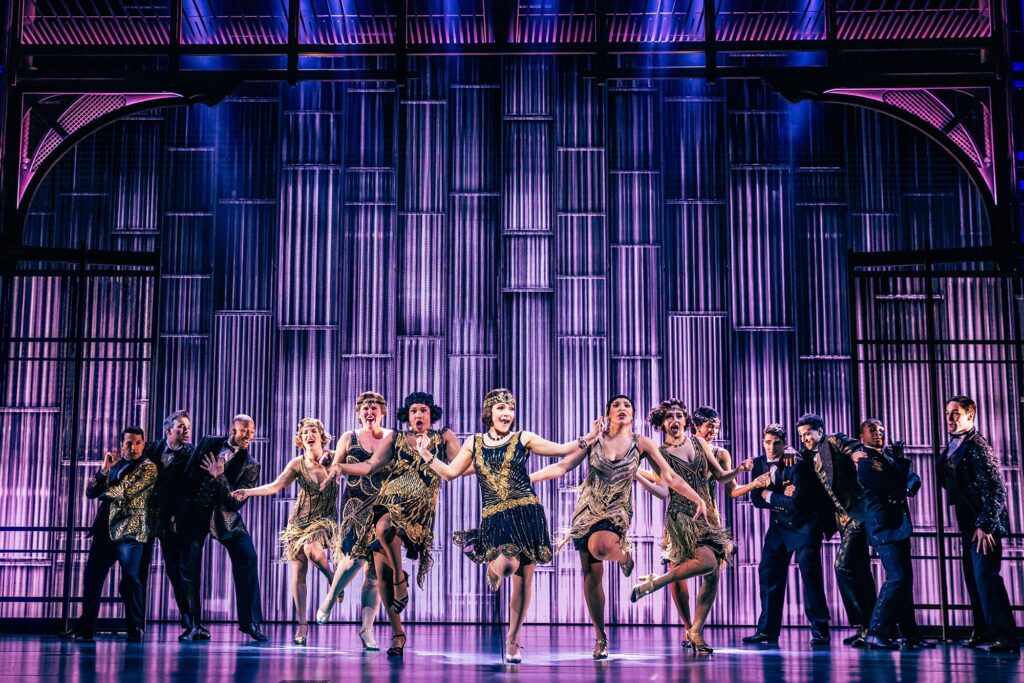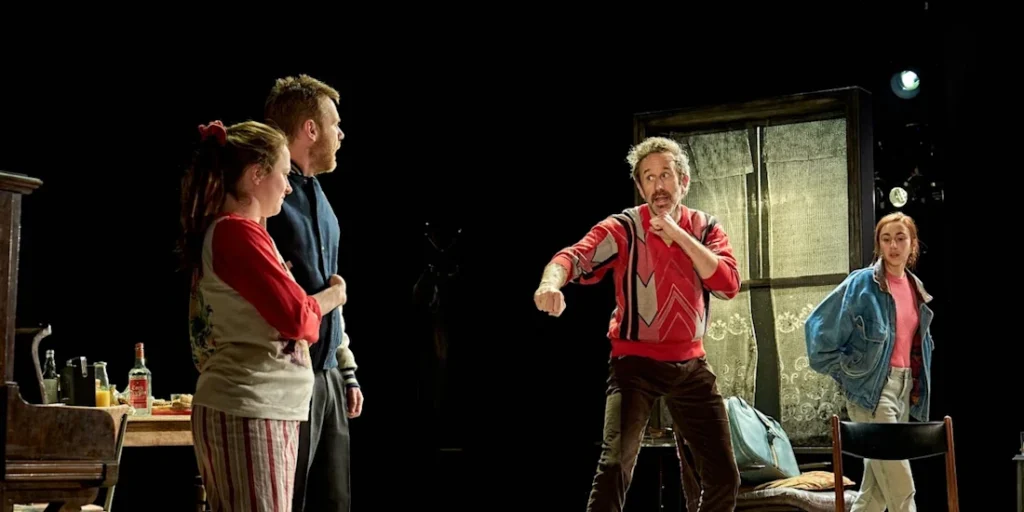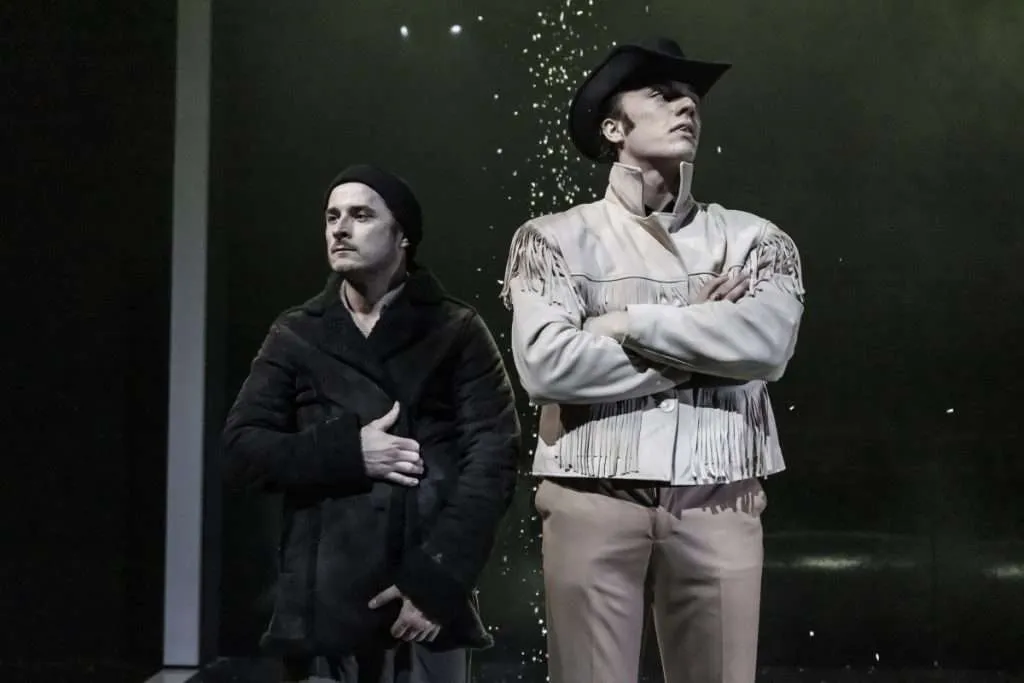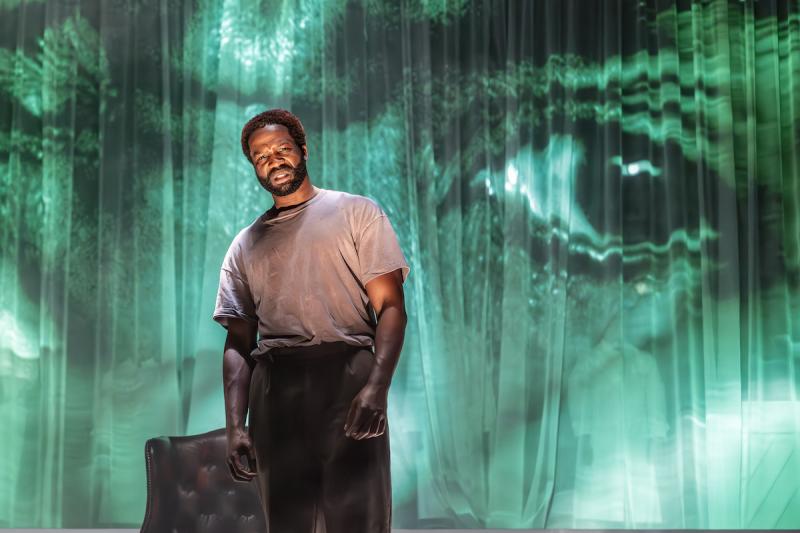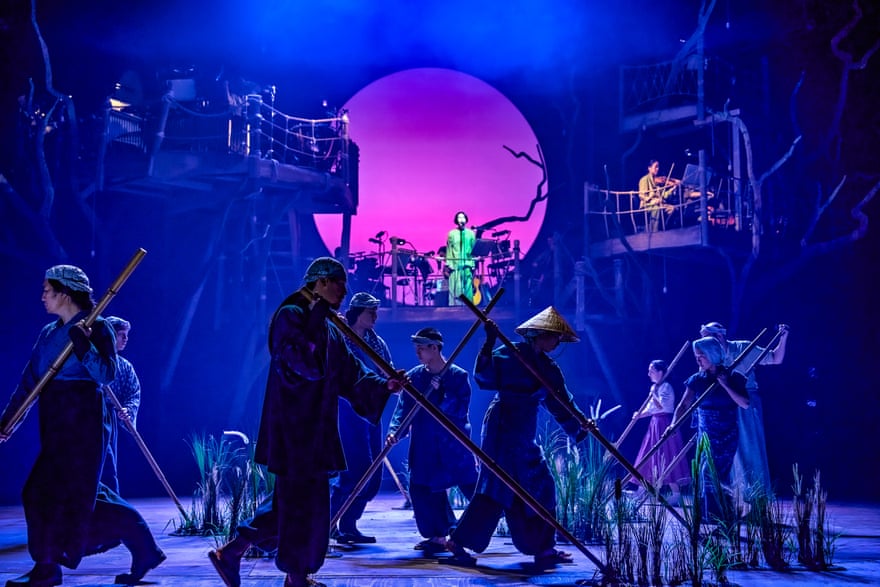Another Hollywood star fails to shine on a London stage
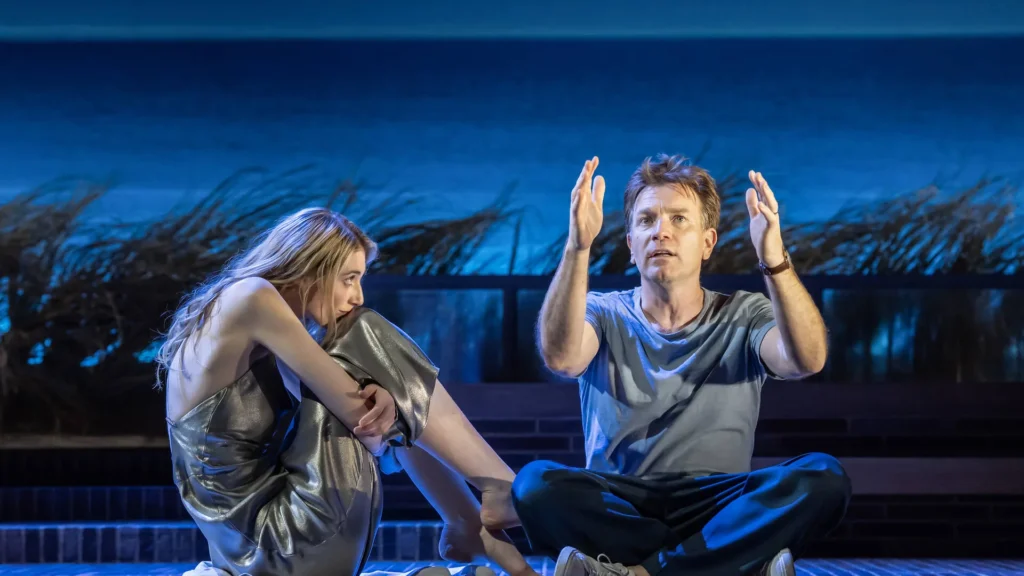
Lila Raicek’s new play is inspired by Ibsen’s The Master Builder but puts more emphasis on the wife Elena (Kate Fleetwood) and a young woman Mathilda (Elizabeth Debicki) from an earlier relationship, than the ‘starchitect’ himself (Ewan McGregor). The critics found that McGregor’s character was too nice in this version, leaving him little room to show his acting skill, but Kate Fleetwood as a vengeful woman impressed them.
[Links to full reviews are included but a number are behind paywalls and therefore may not be accessible]
3 stars ⭑⭑⭑
The Guardian‘s Arifa Akbar concluded, ‘The focus on the women is interesting and intriguing, even though it means Henry feels rather spare to the drama. This is a story not of genius men building castles in the air for their princesses but of what destruction they wreak in their homes in so doing. Really, it is the drama of The Master Builder’s Wife.’
Alice Saville in The Independent declared, ‘(the) play sweeps you along, into a breezy study of a great man whose scheming wife gets the last laugh. She noted, ‘Ewan McGregor brings serious charm to the role of the titular architect Henry Solness, but his star power is entirely outshone by Kate Fleetwood’s formidable acting chops as his furious wife Elena, bent on bringing his dreams crashing down to the ground. Ironically, given it’s a play about an architect, she didn’t like the design: ‘Director Michael Grandage and designer Richard Kent’s evocation of this play’s setting on the moneyed Hamptons feels a little stuffy, with an overly fussy attempt at modern architecture cluttering the stage’.
The Telegraph’s Dominic Cavendish found McGregor ‘struggles to attain the intensity required’. It seems the play was at fault: ‘What should deepen and tauten the drama alas throws up inconclusive thoughts on empowerment and a ton of emotional overstatement.’
Andrzej Lukowski of Time Out felt the star casting imbalanced the production: ‘it feels like McGregor hogs the lines and the stage time, while the women hog the bits where Raicek actually has something interesting to say.’ He dismissed McGregor’s role as ‘just a nice guy blundering through a genteel midlife crisis’.
Olivia Rook for LondonTheatre agreed with the other critics that ‘Despite being the play’s headline star, McGregor is outshone by the women on stage’, however she was kinder than most about the play itself: ‘it remains exciting to see old work interrogated and transformed into something new.’
2 stars ⭑⭑
The Financial Times’ Sarah Hemming called it ‘curiously wooden and inauthentic’ explaining ‘the situation feels oddly contrived and the dialogue often stiff and airless’. She said McGregor ‘struggles to animate some cloying lines’. The Times’ Clive Davis called the play ‘a painfully windy psychodrama…which grinds its way to a wildly implausible conclusion’. He described McGregor as ‘likeable, but anodyne’.
Sam Marlowe of The Stage concluded, ‘McGregor’s Henry ends up as little more than the fraying ball of wool batted about in the catfights…It’s Fleetwood who supplies the stellar turn here, by turns vengeful, maudlin and magnificent. I just wish she had something more flavourful and substantial to sink those sharp teeth into.’
Nick Curtis in The Standard protested at the ‘glib, howlingly pretentious script’ and said McGregor is ‘out-characterised and out-emoted by his female co-stars. Kate Fleetwood plays Solness’s wife Elena in full-on, steel-eyed Valkyrie mode, slashing through every scene she’s in. Elizabeth Debicki…has a cool, languid abandon … and is so tall and slender in a silver dress she resembles a thermometer.’ He ended: ‘I laughed at this star vehicle, not with it.’
Critics’ average rating 2.6 ★
Value rating 28 (Value rating is the Average Critic Rating divided by the typical ticket price)
My Master Builder runs at Wyndham’s Theatre until 12 July 2025. Click here to buy tickets direct from the theatre.
If you’ve seen My Master Builder at Wyndham’s Theatre, please add your review and rating below

